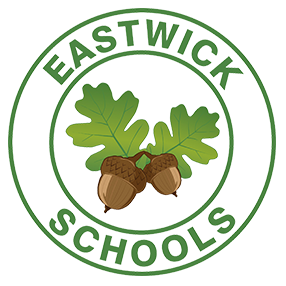History
National Curriculum Purpose of Study
A high-quality history education will help pupils gain a coherent knowledge and understanding of Britain’s past and that of the wider world. It should inspire pupils’ curiosity to know more about the past. Teaching should equip pupils to ask perceptive questions, think critically, weigh evidence, sift arguments, and develop perspective and judgement. History helps pupils to understand the complexity of people’s lives, the process of change, the diversity of societies and relationships between different groups, as well as their own identity and the challenges of their time.
National Curriculum Aims
The national curriculum for history aims to ensure that all pupils:
- know and understand the history of these islands as a coherent, chronological narrative, from the earliest times to the present day: how people’s lives have shaped this nation and how Britain has influenced and been influenced by the wider world
- know and understand significant aspects of the history of the wider world: the nature of ancient civilisations; the expansion and dissolution of empires; characteristic features of past non-European societies; achievements and follies of mankind
- gain and deploy a historically grounded understanding of abstract terms such as ‘empire’, ‘civilisation’, ‘parliament’ and ‘peasantry’
- understand historical concepts such as continuity and change, cause and consequence, similarity, difference and significance, and use them to make connections, draw contrasts, analyse trends, frame historically-valid questions and create their own structured accounts, including written narratives and analyses
- understand the methods of historical enquiry, including how evidence is used rigorously to make historical claims, and discern how and why contrasting arguments and interpretations of the past have been constructed History – key stages 1 and 2
- gain historical perspective by placing their growing knowledge into different contexts, understanding the connections between local, regional, national and international history; between cultural, economic, military, political, religious and social history; and between short- and long-term timescales.
History at Eastwick - Intent
The history curriculum at Eastwick meets the requirements of the National Curriculum the school’s Curriculum Intent. Therefore, it prepares children to be ‘Ready for Everything’ in their futures in terms of:
- Success in the next stage of their education and beyond: by providing knowledge and understanding of the past and some significant events throughout history; by providing a secure understanding of chronology; by providing children with the ability to draw inferences and make their own conclusions based on what they have seen and studied; by developing disciplinary knowledge that will equip them to further develop their historical understanding in the next stage of their education.
- Their ability to navigate life’s personal Challenge: by inspiring inquiry and curiosity, developing a love of asking questions and wanting to know more; by developing children’s ability to listen, reflect, form opinions, empathise, agree and disagree on historical matters.
- Understanding their place in communities at global, national and local levels and seize the Opportunity of the future: by learning and demonstrating the school values in how they collaborate in their learning, and how they discuss and form opinions about historical events; by learning how to use historical thinking to understand not only the past, but the current ever-changing world and the interconnectedness between countries.
History at Eastwick - Implementation
- In Reception, pupils are taught elements of history that prepare them for the Year 1 curriculum.
- Our curriculum in Years 1-6 has been developed by our history subject leader, according to the objectives and guidance offered by the National Curriculum.
- Knowledge is built progressively throughout Key Stages 1 and 2. For each unit, the following is identified:
- 'knowledge end points' ('I know (that)...' or 'I know how to...' outcomes that children are expected to master by the end of the unit)
- ‘substantive knowledge strands’ (key themes and vocabulary that form the basis of children’s mental mind maps or schemas, which enable pupils to recall and build on prior knowledge)
- 'disciplinary knowledge', which is taught implicitly and enables children to ‘walk in the expert’s shoes’.
- Pupils revisit the substantive knowledge strands as they progress through the school. Each time a strand is revisited, prior knowledge is recalled before it is covered with greater complexity or in a different context, therefore increasing children’s breadth and depth of knowledge.
- Across Key Stages 1 and 2, pupils are taught three units per year, which equates to one per term.
- Provision is made for all pupils, including those with SEND, by teachers providing suitable access arrangements as part of their 'Quality First Teaching' offer, adapting resources and activities to meet individual children’s needs.
- We make use of the local area and school visits (for example to Hampton Court Palace) to enrich children’s historical knowledge. We also use themed days, often including workshops run by outside experts, to deliver our curriculum and develop children’s historical understanding in an inspiring way.
Curriculum Progression
Please visit the Subject Progression Documents page for details of curriculum progression in knowledge end points, substantive knowledge strands and disciplinary knowledge from Reception to Year 6.
History at Eastwick - Impact
- The history subject leader, in conjunction with senior leaders and others, carries out monitoring of provision. This takes the form of pupil voice, lesson observation and work scrutiny.
- We know that teaching is impactful on children’s progress when:
- children demonstrate that they have built progressively complex ‘schemas’ in their long-term memory for each of the substantive knowledge strands. This is demonstrated when they can recall prior knowledge and learning, and master the knowledge in each progressive step in the curriculum because they have mastered the knowledge gained in previous steps and built on it
- children show increasing mastery of disciplinary knowledge as they progress through the curriculum
- children therefore show that they 'know more and remember more' after each unit of learning.

